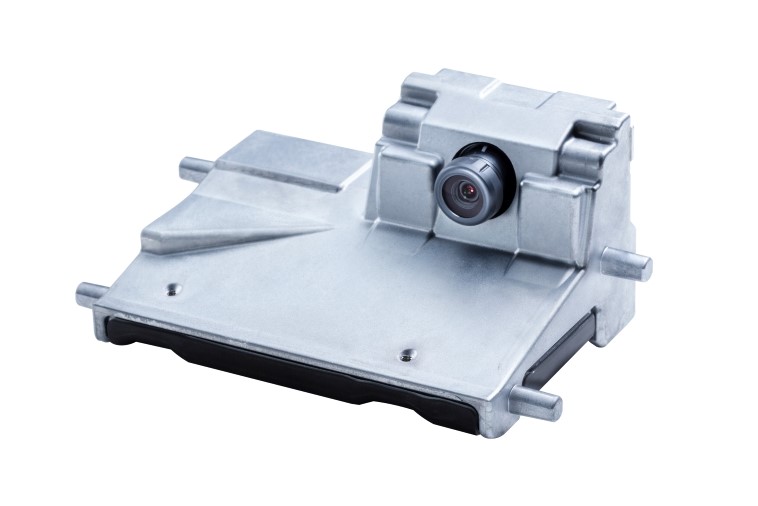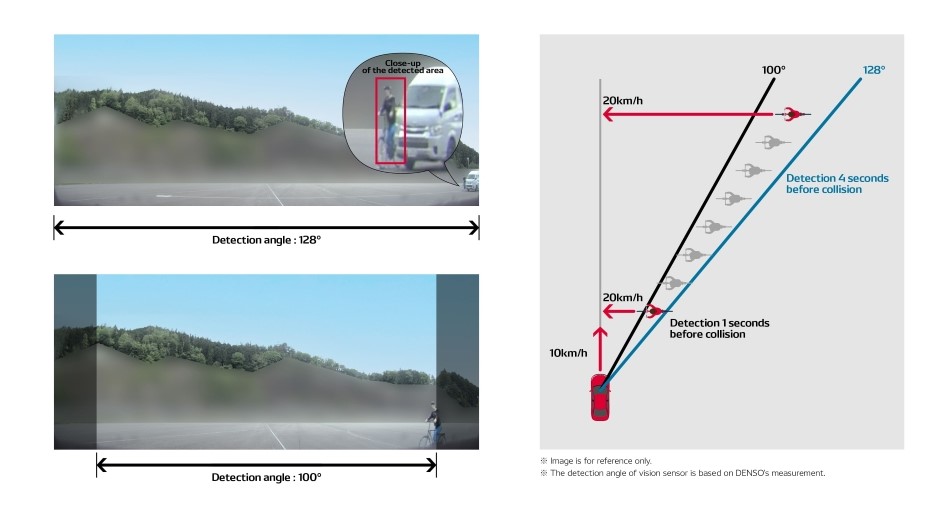
DENSO Corporation has announced it has expanded the detection angle of its vision sensor, increasing the sensor’s ability to recognize pedestrians and bicycles around a vehicle to improve road safety. The vision sensor is used on some grades of the SUBARU Legacy Outback for the North American market, and the all-new SUBARU Crosstrek for Japanese market.

Many traffic accidents occur when bicyclists and pedestrians suddenly enter roadways from the side. Drivers are likely to overlook small children and fast bicycles entering the road suddenly from the side, and even if they notice them, struggle to react in time and accidents may occur. Recognizing the importance of the issue, the new car assessment program in Europe (Euro-NCAP) has made it necessary for new vehicles to be able to detect pedestrians and bicyclists from the side of roadways.
DENSO decided to tackle this issue and succeeded in expanding the detection angle of its vision sensor to 128°. This has made it possible to detect bicycles crossing the road when driving at low speed and meets the assessment conditions stipulated by Euro-NCAP. Thus, the sensor will help to prevent accidents at intersections and other areas where vehicles, motorcycles, bicyclists and pedestrians come and go at various speeds.
A wider detection angle can detect many more objects, which means non-hazardous objects are also detected. This makes it critical for the sensor to decipher which is a threat and which is not. For example, when the sensor detects a bicyclist about to cross the road, if the cyclist brakes and stops, the vehicle can keep driving without a collision. However, if the autonomous emergency braking is activated, the vehicle behavior is unpleasant for the driver and is likely to cause other hazards due to its unexpected behavior. The advantages of a wider angle and practical usage have been achieved by detecting objects well in advance with AI technology, determining whether such objects actually pose a risk based on time-series estimation, and minimizing unnecessary vehicle behavior.
